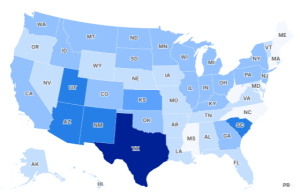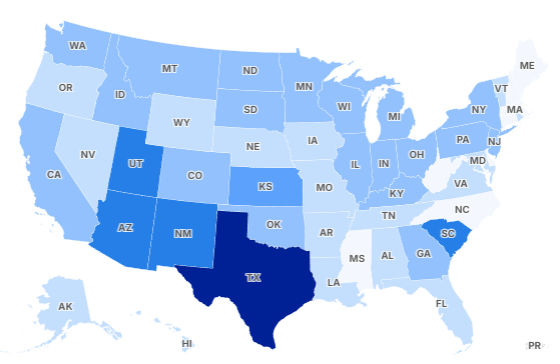Jeanine Pirro is wasting no time. Just hours after being confirmed as U.S. Attorney for the District of Columbia, she made a move that quietly dismantled one of the most controversial hiring mandates in the federal government. The decision has deep roots—and even deeper implications.
Background: A Decree Older Than Most Federal Workers
For more than four decades, federal hiring practices have been shaped by the terms of a little-known court order called the Luevano consent decree, born from a 1979 lawsuit during the Carter administration. The decree restricted how federal agencies could evaluate job candidates—requiring racial outcome parity in testing and multiple layers of oversight for any new hiring assessments.
Though few outside the government HR world knew its name, the decree cast a long shadow over personnel decisions in nearly every federal department.
Pirro’s First Statement: Merit Over Identity
Speaking Friday in her first public comments as U.S. Attorney, Pirro made her position clear.
“It’s simple,” she said. “Competence and merit are the standards by which we should all be judged; nothing more and nothing less.”
Quoting Martin Luther King Jr., she added:
“It’s about time people are judged, not by their identity, but instead ‘by the content of their character.’”
Pirro’s statement follows the Justice Department’s formal announcement that the Civil Rights Division has ended the Luevano decree—a move decades in the making.
Quiet, But Explosive
While the headlines haven’t caught up yet, federal hiring managers and legal experts are already calling this one of the most important reversals in recent DOJ history.
Assistant Attorney General Harmeet Dhillon said the decree had become a drag on talent acquisition and innovation.
“For over four decades, this decree has hampered the federal government from hiring the top talent of our nation,” she said. “Today, the Justice Department removed that barrier and reopened federal employment opportunities based on merit—not race.”
A Confirmation Battle Behind the Scenes
Pirro’s confirmation didn’t come easy.
She was confirmed by a narrow 50–45 vote after weeks of stalled negotiations in the Senate. Democrats walked out of Judiciary hearings in protest, objecting to her past role on Fox News and her vocal defense of former President Trump following the 2020 election.
Her nomination came after another Trump pick, Ed Martin, failed to secure Republican support—reportedly blocked by retiring Sen. Thom Tillis over concerns related to January 6.
Despite the pushback, Trump stood by Pirro.
“Jeanine is incredibly well-qualified for this position,” he said. “She is in a class by herself.”
What the Decree Actually Did
The Luevano consent decree forced federal agencies to pause any hiring test that didn’t meet “equal outcome” standards across racial categories. It effectively prevented the Office of Personnel Management (OPM) from using or revising standardized assessments without court-approved oversight.
In practical terms, that meant hiring delays, restrictive testing rules, and challenges in recruiting specialized professionals—especially in national security, law enforcement, and technical fields.
Removing this court-imposed structure, legal analysts argue, returns autonomy to federal HR departments and restores merit-based selection as the core principle of hiring.
What Comes Next?
While Pirro’s move may not make splashy headlines, the legal ripple effect is just beginning. Federal agencies will now be free to revise outdated assessment methods, accelerate hiring processes, and widen their search for high-caliber talent—without fear of legal backlash tied to statistical disparities.
And in a political climate where “DEI” policies are increasingly under fire, this quiet reversal may prove to be one of the most impactful first moves of any U.S. attorney in recent memory.

Emily Johnson is a critically acclaimed essayist and novelist known for her thought-provoking works centered on feminism, women’s rights, and modern relationships. Born and raised in Portland, Oregon, Emily grew up with a deep love of books, often spending her afternoons at her local library. She went on to study literature and gender studies at UCLA, where she became deeply involved in activism and began publishing essays in campus journals. Her debut essay collection, Voices Unbound, struck a chord with readers nationwide for its fearless exploration of gender dynamics, identity, and the challenges faced by women in contemporary society. Emily later transitioned into fiction, writing novels that balance compelling storytelling with social commentary. Her protagonists are often strong, multidimensional women navigating love, ambition, and the struggles of everyday life, making her a favorite among readers who crave authentic, relatable narratives. Critics praise her ability to merge personal intimacy with universal themes. Off the page, Emily is an advocate for women in publishing, leading workshops that encourage young female writers to embrace their voices. She lives in Seattle with her partner and two rescue cats, where she continues to write, teach, and inspire a new generation of storytellers.









